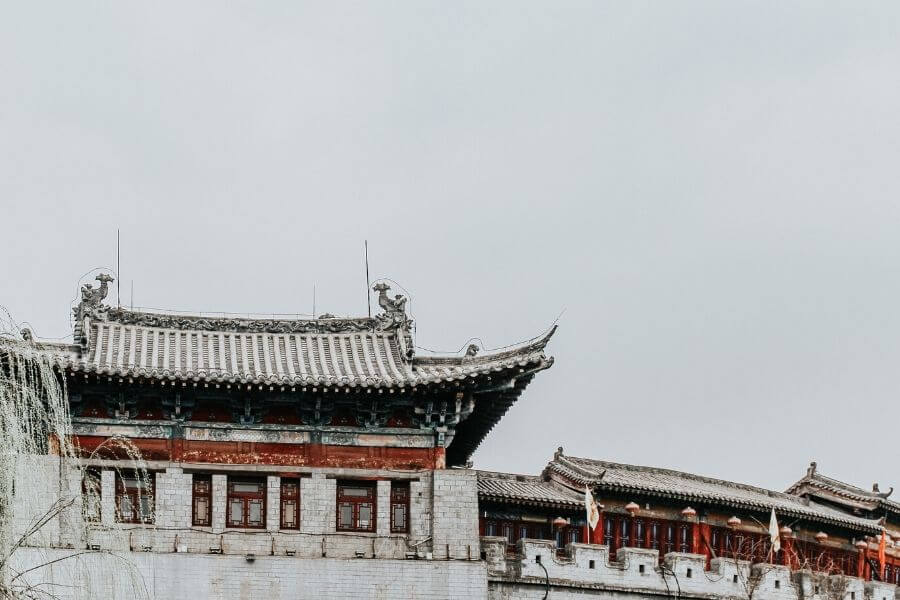
The judge quota system refers to the system for determining the number of judges in the court. In the judicial reform, the Supreme People's Court (SPC) attempts to rationally determine the number of judges in each court in a scientific way and then select the right candidate to serve as a judge.
1. The background of the judge quota system
The reason why the SPC conducts the reform of the judge quota system is to correct the hierarchical structure of Chinese courts that has long been similar to that of administrative agencies. Under this structure, judges are the ordinary staff of the court, not professionals. A judge has no difference in identity with the financial staff, the support staff, and the judicial police in the court. Even at the end of the last century, in practice, the title of the judge became a reward, so a judicial police officer may also be rewarded with a judge's identity.
Such identity confusion will result in a dilemma where many who are not competent for trial activities become judges. Therefore, as early as 20 years ago, Chinese courts tried to separate judges from other court staff.
The SPC, in the “Outline of the First Five-Year Reform of the People's Court (1999-2003)” (人民法院第一个五年改革纲要(1999-2003)) promulgated in 1999, proposed to determine the number of judges in the court staff. The first PRC Law on Judges enacted in 2001 further stipulates that the SPC has the power to lay down specific rules to determine the proportion of judges in the total court staff in courts at various levels.
However, since then, the judge quota system has not been implemented in Chinese courts. This is because:
On the one hand, Chinese courts did not know how to classify the work of the court at that time. Therefore they had neither idea of how to classify the staff nor the appropriate proportion of judges in a court;
On the other hand, some senior leaders in the courts are not capable enough to serve as judges. If the judge quota system is implemented but these people do not become judges, it will affect their status in the court. Therefore, these people are not willing to carry out the judge quota system reform.
Not until the most recent round of judicial reform (2015-2017), did the Communist Party of China (CPC) Central Committee and the SPC begin to vigorously promote the judge quota system, and the situation began to change.
2. Determining the number of judges
First, the SPC solved the classification problem of court staff. In the recent round of judicial reform, the judge quota system and the classification of court staff are two measures in parallel. The SPC divides court staff into three categories: judges, judicial assistants, and administrative staff. Except for judges, law assistants, law clerks, and officers for judgment enforcement are listed as judicial assistants, while others are listed as administrative staff.
Second, the SPC requires each court to determine the number of its judges. The SPC requires that each court should reasonably determine the number of its judges based on the economic and social development, population, caseload and case types in their jurisdiction, and according to the court level, the workload of the judges, the number of judicial assistants, and the infrastructure in each court.
However, in practice, how to determine the number of judges in each court has become a problem. Although the SPC lists the elements above that should be considered, how to accurately calculate based on these elements is left to local courts to explore. It has also stimulated many Chinese judges and scholars to propose various programs.
Shanghai High People’s Court took the lead in adjusting the proportion of judges in the court staff from 56% to 33%. Specifically, it requires courts in Shanghai have 33% of judges, 52% of judicial assistants, and 15% of administrative staff.
Since then, most Chinese courts have determined the proportion of their court staff, which is similar to that in Shanghai. According to the report of Justice Zhou Qiang (周强), President of the SPC, till now, the number of judges nationwide has dropped from 21,1990 to 120,138, down by 43%.
3. Problems of the judge quota system
(1) The increased workload of judges
The judge quota system has led to a significant reduction in the number of judges, but the number of judicial assistants has not increased simultaneously, and other measures to help judges reduce the workload have not been implemented in parallel. This has led to a corresponding increase in the workload of each judge.
At the same time, another measure in the judicial reform, i.e., the registration system for case docket, has led to an explosion in the number of lawsuits. Prior to this, many local courts may arbitrarily refuse to receive the case applications to reduce the workload. Now, the SPC requires that each court receive all legitimate applications from the parties. Thus courts suddenly face the litigation explosion.
The litigation explosion and the reduction in the number of judges appeared simultaneously, causing the workload of many judges on the verge of collapse. Now, the excessive workload of judges has become one of the major topics in the Chinese judge community.
What’s more, the excessive workload also makes the judges unable to hear cases in time, and a large number of cases were backlogged. This also caused dissatisfaction among the parties.
For example, the Chaoyang District of Beijing where I work is the most developed area with the largest number of disputes in Beijing. Therefore, Chaoyang Primary People's Court is also known in China for its extremely large caseload. Their judges have become accustomed to working overtime every day, every weekend, and even scheduling parties for court sessions late at night. Therefore, I no longer recommend my clients to resolve the dispute in the court, because a lawsuit, which should be concluded within six months, now may not be concluded within three years.
(2) Lower working enthusiasm and the exodus of judges
First of all, the judge quota system has deprived many former judges of the identity of a judge, reducing them to judicial assistants. Moreover, according to the previous promotion model, some law clerks are likely to become judges, but now they no longer have this opportunity, and can only be judicial assistants.
Some of my friends are faced with such an awkward situation, which has greatly reduced their enthusiasm for work.
Second, the workload has excessively affected the physical health and family life of the judges. Therefore, many judges chose to resign and leave the court. The resignation of judges from courts in economically developed areas of Beijing, Shanghai, and Guangdong is the most common. After leaving the courts, most of them choose to work in a law firm or in the corporate legal department.
Five of my friends used to be judges in some courts in Beijing, but now they have all resigned. Even some of them have already anticipated the consequences of the judge quota system before it took effect, so they resigned in advance.
Third, in the implementation of the judge quota system, the leadership of the court (such as the president, the director) still maintains their identities of judges, but their energy is mainly focused on management, so the number of their cases is small. This has led to a further reduction in the number of judges who work effectively and a further increase in their workload. This situation has also caused dissatisfaction among many judges. To deal with this problem, the SPC is also trying to force the leadership to hear a certain number of cases.
If you would like to discuss with us about the post, or share your views and suggestions, please contact Ms. Meng Yu (meng.yu@chinajusticeobserver.com ).
If you wish to receive news and gain deep insights on Chinese judicial system, please feel free to subscribe to our newsletters (subscribe.chinajusticeobserver.com ).
Contributors: Guodong Du 杜国栋 , Meng Yu 余萌









